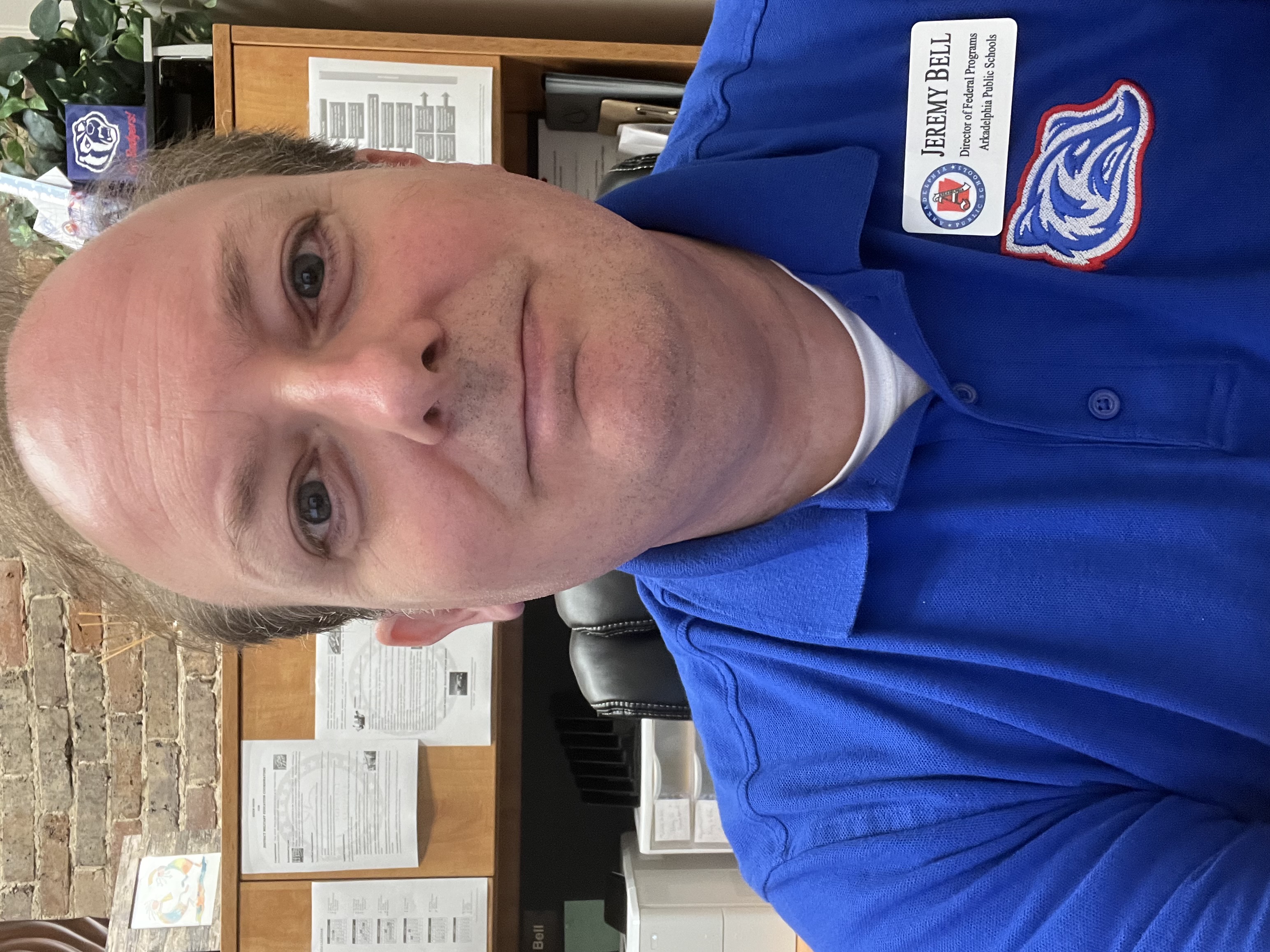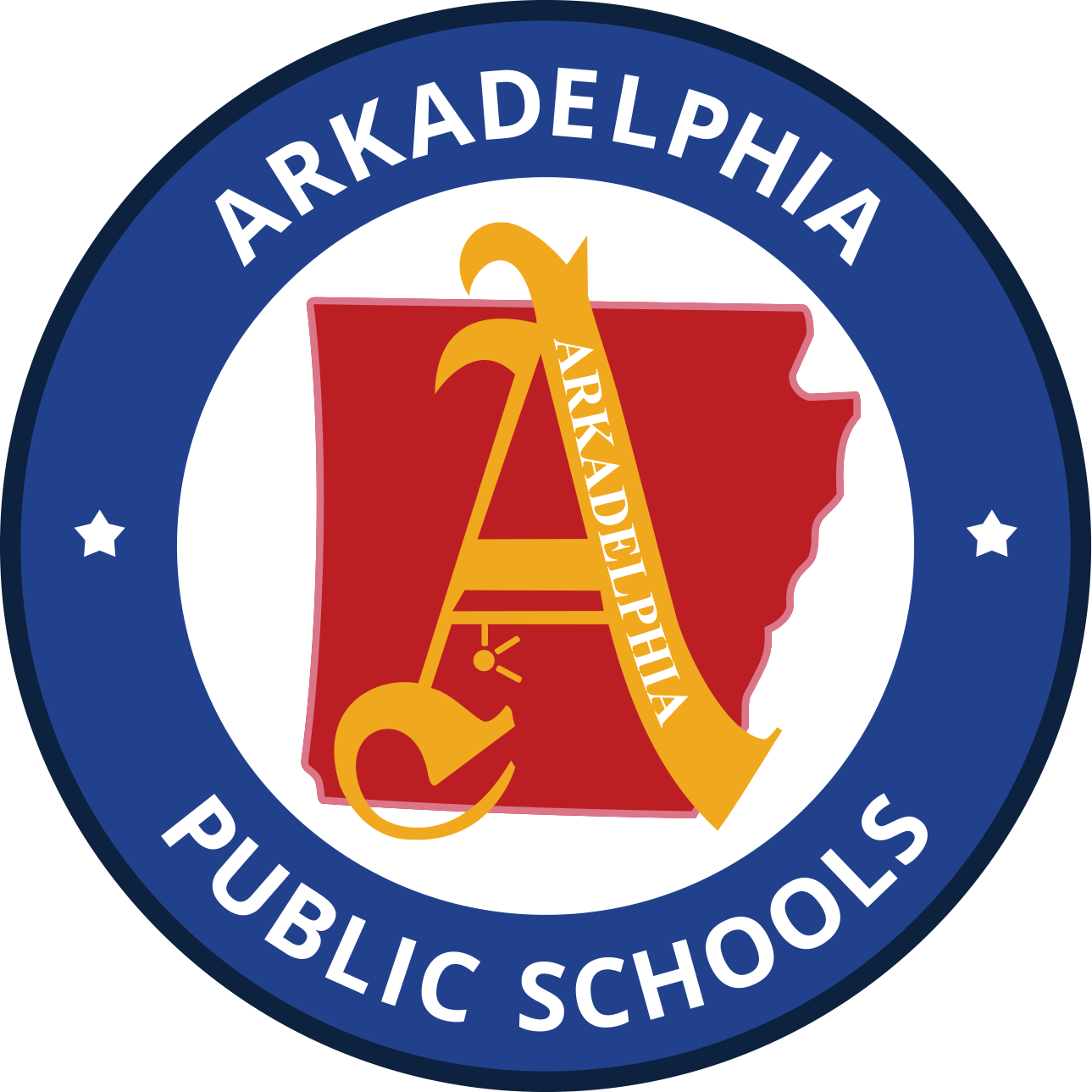Title IV

William Jeremy Bell
Director of Federal Programs
Title IV Coordinator
700 Clinton Street, Dawson Building #3
P. O. Box 10
870-246-5563
william.bell@arkadelphiaschools.org
Welcome and Overview
Welcome to the Title IV section of the website.
Arkansas schools and districts use federal resources in their efforts to improve student achievement, to ensure that students are proficient in meeting our state standards, and to prepare for a successful future.
The Arkadelphia Public School District is a subrecipient of Federal Grant Program funds to supplement and complement the efforts of local school systems, the private sector, public and private nonprofit educational research institutions, community-based organizations, parents and students to improve the quality of education.
District personnel receive technical assistance from ADE:DESE personnel in our efforts to apply best-practices in both fiscal and programmatic matters and to maintain communication efforts not only in the program planning stage but the implementation stage as well.
Title IV
Student Support and Academic Enrichment Grants (ESEA Sections 4101-4111)
The Elementary and Secondary Education Act of 1965, as authorized by the Every Student Succeeds Act (ESSA) of 2015, established Title IV, Part A, the Student Support and Academic Enrichment Grant Program (SSAE). The overarching goal of Title IV, Part A, is to increase the capacity of state education agencies, local education agencies, campuses, and communities to meet the following three goals:
Provide all students access to a well-rounded education
Improve academic outcomes by maintaining safe and healthy students
Improve the use of technology to advance student academic achievement
Local Education Agency (LEA) Requirements
Local Education Agencies (LEAs) must complete and submit a Federal Grant Application in Indistar to receive ESEA Title IV, Part A, program allocations. (4105(a)(1)and 4106(a)
Engages in consultation with stakeholders in the area served by the LEA during the design and development of their application (section 4106(c) of the ESEA)
An LEA may, if it chooses, apply for funds in consortium with one or more surrounding LEAs and combine funds each LEA receives. (ESEA section4106(b))
LEAs receiving $30,000 or more shall conduct a comprehensive needs assessment of the access to, and opportunities for, a well-rounded education for all students; school conditions for student learning to create a healthy and safe school environment; and access to personalized learning experiences supported by technology. ESEA section 4106(d)
LEAs receiving less than $30,000 are NOT required to conduct a comprehensive needs assessment
LEAs may transfer Title IV, Part A, funds to another federal program. An LEA may not transfer funds to a particular program solely to provide equitable services for private school students or teachers. Rather, an LEA, after consulting with appropriate private school officials, must provide equitable services to private school students and teachers based on the rules of each program and the total amount of funds available to each program, after a transfer (Section 5103( e) ). For guidance, see Non-Regulatory Guidance: Fiscal Changes and Equitable Services Requirements.
Distribution of Funds
Prioritize the distribution of funds to schools served by the LEA based on one or more of the following criteria—
Are among the schools with the greatest needs;
Have the highest percentages or numbers of children counted under section 1124(c) (i.e., children counted for purposes of basic grants to LEAs under Title I, Part A of the ESEA);
Are identified for comprehensive support and improvement under section 1111(c)(4)(D)(i) (i.e., are among the lowest-achieving schools);
Are implementing targeted support and improvement plans as described in section 1111(d)(2) (i.e., have consistently underperforming student subgroups); or
Are identified as a persistently dangerous public elementary school or secondary school under section 8532. (ESEA section 4106(e)(2)(A)).
Supplement not Supplant Requirement
Supplement, not supplant provisions require an LEA to use state or local funds for all services required by state law, or local policy and prohibit those funds from being diverted for other purposes when federal funds are available. (ESEA section 4110)
Title IV, Part A, funds must supplement—add to, enhance, expand, increase, extend—the programs and services offered with state and local funds;
cannot be used to supplant—take the place of, replace—the state and local funds used to offer those programs and services; and
are expended to benefit the intended population defined in the authorizing statute, rather than being diverted to cover expenses that an LEA would have paid out of other funds in the event the federal funds were not available.
Preliminary Checklist for Allowable Activities and Use of Funds
Each LEA must be able to respond appropriately to and maintain documentation of the following: How is the expenditure reasonable and necessary to carry out the intent and purpose of the program and content area(s) of Title IV, Part A?
What specific need identified in the comprehensive needs assessment does the expenditure address?
How will the expenditure be evaluated to measure a positive impact on student achievement?
How is the expenditure supplemental to funds that would be otherwise available for activities authorized under Title IV, Part A program (ESEA section 4110).
U.S. Department of Education Resources
U.S. Department of Education Non-Regulatory Guidance: SSAE Grants
U.S. Department of Education Office of Safe and Healthy Students
U.S. Department of Education ESSA Title IV Student Support Academic Enrichment Webinar Series
National Center on Safe Supportive Learning Environments
Other Resources
District Implementation
Currently, APSD transfers some of the funds from this area to Title I and/or Title V per state and federal guidelines.
Remaining funds are budgeted based on the comprehensive needs assessment (CNA) while ensuring that the potential expenditures are allowable/allocable, necessary, and reasonable.
Personnel, students, their families, and other interested parties are invited to ask questions, to provide feedback, and to contribute to the process as part of our consultation with stakeholders. Therefore, we invite you to use our APSD Federal Programs Engagement Survey (feel free to provide feedback for this and any of the pertinent sections).
District's GEPA Statement for Title IV
Title IV funds will be transferred to Title I. Funds will be used to help all students and teacher of the Arkadelphia School District regardless of gender, race, national origin, color, disability, and therefore provide equitable access to our federally-assisted educational programs.
Parent's Right to Know
You have a right to request information regarding the professional qualifications of the classroom staff working with your child.
Our district or school will be able to provide you with the following information regarding the qualifications of your child’s teacher(s):
Whether the teacher meets the state qualifications and licensing criteria for the grades and subjects that he or she teaches.
Whether the teacher is teaching under emergency or provisional status because of special circumstances.
Whether the teacher has any advanced degrees and the field of discipline of the teacher’s certification or degree.
If at any time your student has been taught for four (4) or more consecutive weeks by a teacher(s) that is not highly qualified, then you will be notified by the school.
You also have the right to request information regarding the qualifications of the paraprofessional(s) assisting your child’s teacher(s). If your child is receiving Title I, Part A services from a paraprofessional, then our district or school is able to provide you with the following information:
Whether the paraprofessional has completed at least two years of study at an institution of higher education.
Whether the paraprofessional has completed an associate’s degree (or higher).
Whether the paraprofessional has met a rigorous standard of quality through our state’s certification procedure for determining the quality of paraprofessional staff.
Whether the paraprofessional has: (a) the knowledge of and ability to assist in instructing reading, writing, and mathematics or (b) the knowledge of and the ability to assist in learning activities, such as homework, reading readiness, writing, mathematics, and other support as appropriate.
To request this information, please contact the office by phone during school hours:
Peake Elementary School at 870-246-2361
Goza Middle School at 870-246-4291
Arkadelphia High School at 870-246-7373
This letter is available annually on the district website (here).
Disabled Parents
Disabled parents have a right to ask for auxiliary aids and services to afford them an equal opportunity to participate in and to enjoy the benefits of a Title I, Part A Programs.
Complaint Procedures
The Elementary and Secondary Education Act of 1965 (ESEA) requires the state educational agency (SEA) to investigate any complaint provided to the SEA.
Any individual, organization or agency (complainant) may file a complaint with the Arkansas Department of Education if that individual, organization or agency believes and alleges that a local educational agency, the state educational agency, or an agency or consortium of agencies is violating a federal statute or regulation that applies to a program under the ESEA. The complaint must allege a violation that occurred not more than one (1) year prior to the date that the complaint is received, unless a longer period is reasonable because the violation is considered systemic or ongoing.
For more information, please refer to:
Feedback
Please complete any surveys for any campus and for the district
APSD Federal Programs Engagement Survey (feel free to provide feedback for any of the pertinent sections)
Please consider volunteering by campus
Each campus trains its volunteers for the specific roles and/or tasks
Please let us know how we can collaborate with you more effectively

